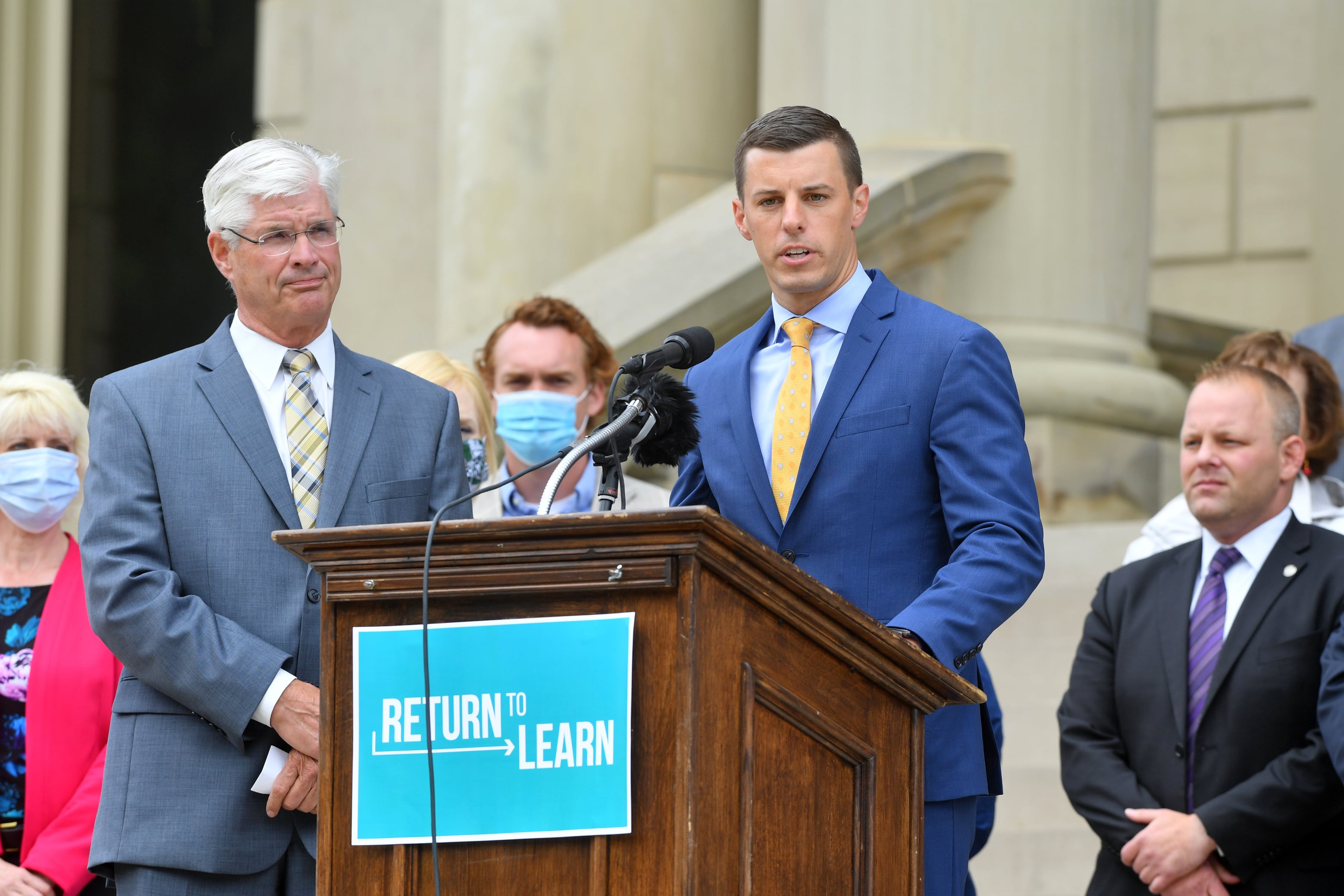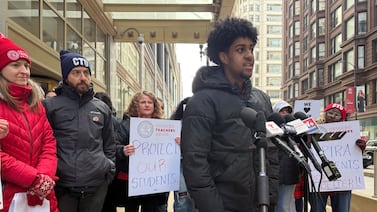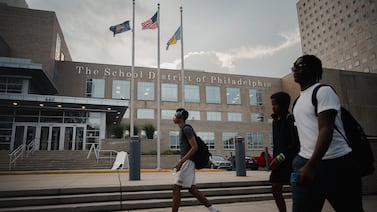Michigan’s top Republican lawmakers are proposing a school reopening plan that would use $1.3 billion in federal funds to offset coronavirus-related expenses.
As schools across the state brace for cuts caused by the coronavirus recession, the money could be a game changer. After months of ominous school budget forecasts, GOP leaders said their plan would eliminate any education-related cuts during the coming year.
“We’re hoping that it’s enough to offset any loss for now,” said Pamela Hornberger, chair of the House education committee. “Our plan uses federal funds to provide students with stability, and it gives us time to plan future K-12 funding.”
With the backing of party leaders, the GOP legislation could soon land on Gov. Gretchen Whitmer’s desk. But it takes steps that Whitmer is likely to oppose, such as redefining attendance to mean “engaged in learning,” rather than “present in a classroom.”
Whitmer’s spokesperson slammed the plan in a statement, pointing out similarities to a proposal published on Wednesday by the Great Lakes Education Project, an advocacy group founded by U.S. Education Secretary Betsy DeVos.
“It is encouraging to see Republicans in the legislature acknowledge that education funding and the flexibility to prioritize learning in a safe environment is critically important,” Tiffany Brown said. “However, it is disheartening to see that their proposal was nothing more than a copy of the DeVos-funded Great Lakes Education Project one-pager.”
GOP leaders said their plan would address uncertainties related to funding, safety requirements, and attendance calculations that have made it difficult for school leaders to respond to the coronavirus.
“Every local school leader, parent, and child in the state of Michigan deserves an apology,” said House Speaker Lee Chatfield. “I don’t believe they’ve received the predictability or the plan or the insight from state government over the past months that they deserve.”
The GOP legislation would:
- Send $800 per student, or roughly $1.2 billion, to schools across the state to help cover coronavirus-related costs, such as paying for cleaning supplies, masks, and students’ internet connections
- Pay each Michigan teacher a $500, one-time bonus because they have been “flexible and innovative in a time of unprecedented change”
- Direct $80 million to county education authorities to coordinate schools’ coronavirus reopening and safety plans. Hornberger suggested that safety plans could vary from county to county.
- Redefine “attendance” to indicate that a student is “engaged in instruction”, rather than present in a physical classroom, with the goal of allowing students to more easily learn outside of school
- Require school districts to consult with local health departments to develop plans for a safe return to in-person instruction
- Require in-person learning in the fall for grades K-5, at a minimum
- Require schools to administer “benchmark assessments” when students return to school
- Require districts to consult with local health departments before resuming sports and other extracurricular activities
The money would come from the federal coronavirus relief package, which sent $3.1 billion to the Michigan state government, according to Rachel Doane, a spokesperson for the Michigan House of Representatives.
David Crim, a spokesman for the Michigan Education Association, the state’s largest teachers union, accused Republican leaders of withholding federal money in order to achieve their education reform goals. He pointed out that lawmakers already transferred some federal coronavirus relief funds to schools in a bill passed last week.
Senate Majority Leader “Mike Shirkey could have easily put that $1.3 billion CARES Act money in there, if that’s what they support,” he said. (The CARES Act, a coronavirus relief bill, was passed by Congress in March.)
Other education leaders said they were encouraged by the GOP’s willingness to tap this particular pot of money for schools.
“I look at this as a positive step. It at least starts moving money, and I can’t stress how badly that’s needed at the local school district level right now,” said Bob McCann, director of the Tri-County Alliance, a coalition of school districts in southeastern Michigan. The group estimates that Michigan schools will spend $1 billion next year on coronavirus related supplies like masks and student internet connections.
“There’s pieces of it I don’t like,” McCann added. “We’re going to push back strongly against the testing in particular. The last thing parents and educators want is for their children to walk right back into the school and take a standardized test.”
Whitmer has said she’ll announce her reopening plan on June 30, after she receives recommendations from the 26-person school reopening council she appointed earlier this month. She doesn’t need the legislature’s approval to lay out health and safety requirements for students’ return to school in the fall, said Steven Liedel, who served as the chief attorney in the administration of Jennifer Granholm.
However, he said, the legislature has control over the federal aid dollars, which could play a key role in Whitmer’s goal of protecting schools from cuts.
“I would hope that we can work together to improve education for our students,” Hornberger said. “That’s my goal.”






